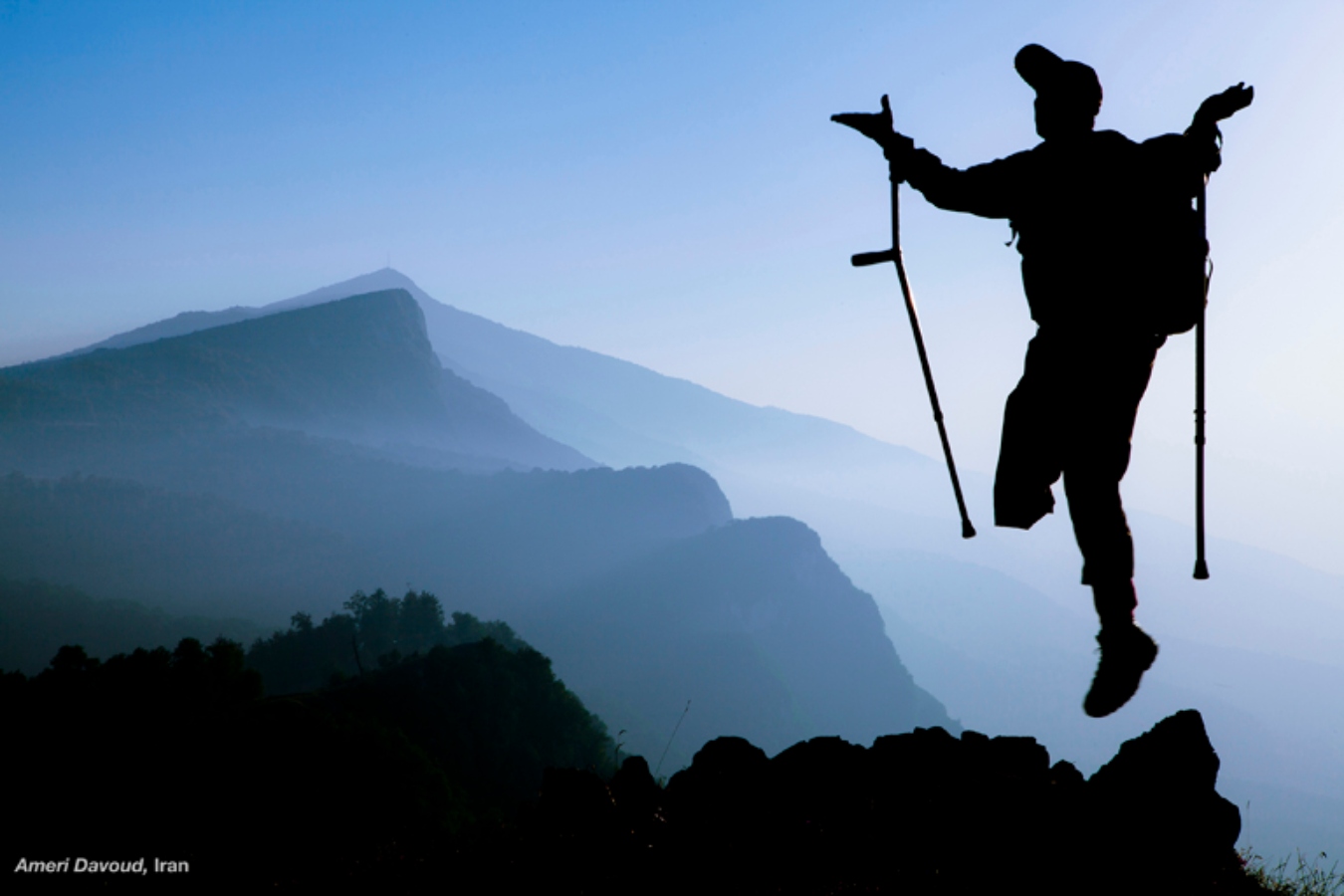
Advancing the rights, well-being and perspectives of women and girls with disabilities in displacement through development and humanitarian responses
13:15 – 14.30, 16 September, 2016, United Nations Headquarters, Conference Room 6
Co-organised by the Permanent Mission of Japan and UN DESA, in collaboration with
UNICEF, UN WOMEN, International Disability Alliance, Handicap International, Human Rights Watch, Rehabilitation International and Women’s Refugee Commission.
(Photo: C. Fohlen / Handicap International)
Quicklinks:
- Rough edited copy of the CART transcript
- Background
- Objectives of side-event
- Provisional Program
- Other Resources
Background
The global community is facing an increasing number of protracted humanitarian crises, involving situations of protracted displacement. These crises are having a significant impact on persons with disabilities, particularly women and girls with disabilities, as they face displacement and seek refuge and opportunities to build a life in host communities. Women and girls with disabilities experience heightened risks and vulnerabilities as they seek out assistance, support and protection as refugees. They also faced compounding barriers to accessing basic services, including education, healthcare and employment.
Experience has shown that humanitarian assistance alone is inadequately resourced and under-capacitated to effectively address or sustainably respond to the developmental needs of displaced women and girls with disabilities. Development outcomes for women and girls with disabilities are therefore compromised by persistent inequalities and exclusion.
The recent World Humanitarian Summit strengthened the visibility of the rights and interests of persons with disabilities in humanitarian crises and galvanised commitment to close existing gaps and ensure humanitarian efforts are truly inclusive. It also prompted the Inter-Agency Standing Committee (IASC) to endorse the development on IASC Guidelines on the inclusion of persons with disabilities in humanitarian crises. This offers significant opportunities for development actors to contribute approaches to strengthen the integration of persons with disabilities in responses that address both their immediate relief needs and longer-term development needs.
Recognising the need for greater collaboration between development and humanitarian actors, the 2030 Agenda for Sustainable Development calls for mutually reinforcing and integrated approaches to sustainable development and peace. The recent ECOSOC Humanitarian Affairs Segment further reiterated the need for development and humanitarian actors to break down silos and no longer conceptualise humanitarian assistance and development as separate spheres of work or a transitional process. Indeed the nature of today’s protracted crises and displacement call for a combination of both relief and development interventions.
Objectives of side-event
In view of the barriers to inclusion and double discrimination faced by women and girls with disabilities in displacement, this event is being convened to bring together actors in both the development and humanitarian fields to share experiences, strategies and lessons learned from pursuing integrated responses to women and girls with disabilities in displacement. The event will also explore approaches to address the cross-sectionalities among disability rights, gender empowerment and issues that guide humanitarian action and development, with a view to breaking down silos to strengthen the inclusion of women and girls with disabilities.
The outcome of the discussion will contribute to follow up from the World Humanitarian Summit and the development of the forthcoming Report of the Secretary-General on Women and Girls with Disabilities.
- H.E. Mr. Hiroshi Minami, Permanent Mission of Japan
- Ms. Venus Illagan, Rehabilitation International
Panelists
- Ms. Emma Pearce, Women’s Refugee Commission
- Mr. Gopal Mitra, UNICEF
- Ms. Georgia Dominik, International Disability Alliance
- Ms. Emina Cerimovic, Human Rights Watch
- Ms. Pilvi Taipale, Permanent Mission of Finland
 Welcome to the United Nations
Welcome to the United Nations
